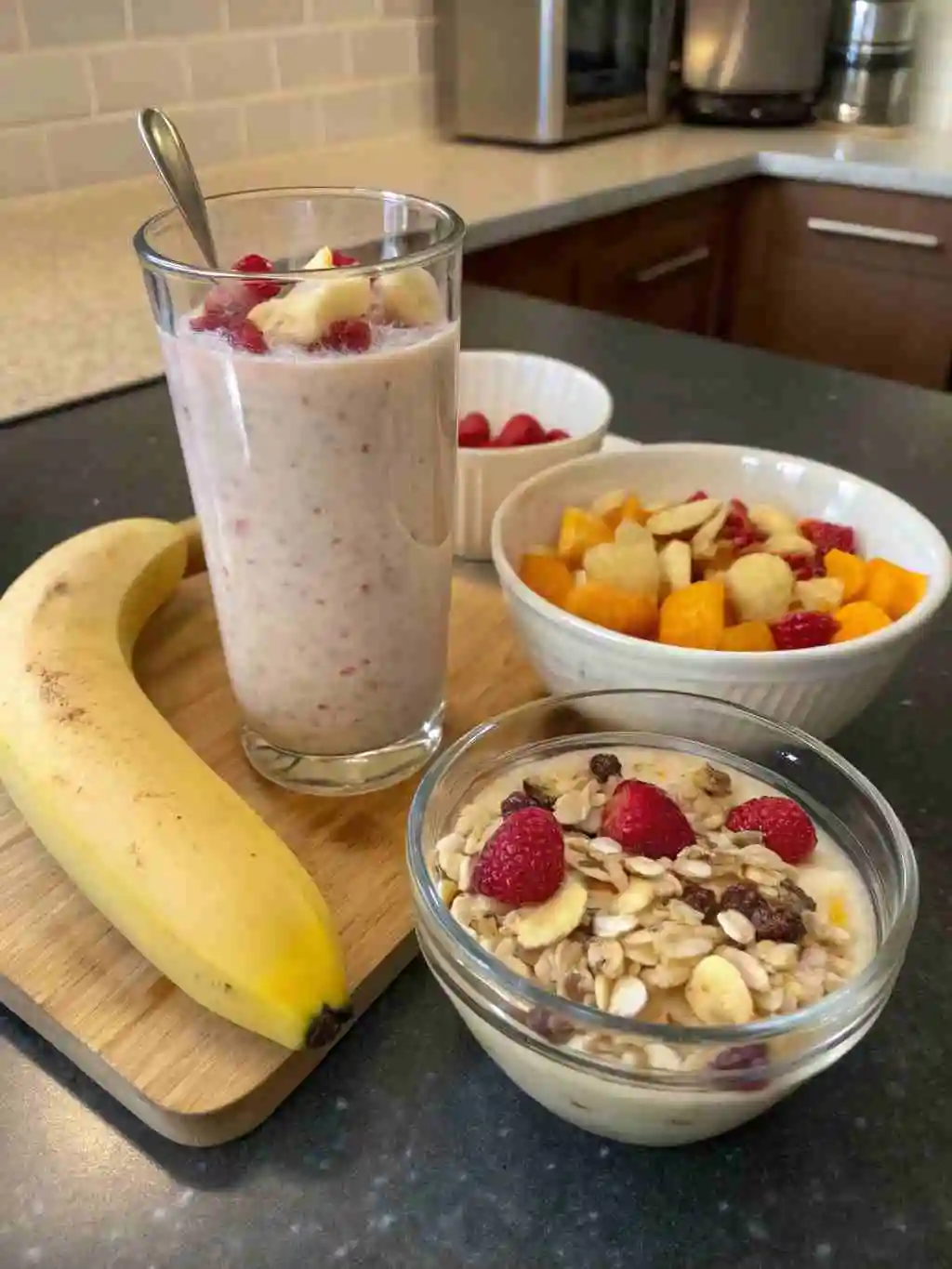Last updated on July 22nd, 2025
Zepbound fatigue is one of the most frustrating side effects people experience when beginning their weight loss journey with this powerful medication. That bone-deep tiredness, mental fog, and overall sluggishness can catch you off guard even before the pounds start dropping. But here’s the truth: while this kind of fatigue is real, it’s also manageable and, most importantly, temporary.

In this guide, we’ll break down what causes Zepbound fatigue, how long it tends to last, and exactly what you can do to feel like yourself again. We’ll explore the role of hormonal shifts, how digestion is affected, and why simple changes to your nutrition, hydration, and sleep can quickly turn things around.
From smart food choices to energy-friendly routines, this is your full toolkit for navigating fatigue while on Zepbound. And because we know you don’t have energy to waste, we’ll keep everything practical, science-backed, and easy to apply including tips like adding a Natural Zepbound Recipe to your daily routine for a clean, energizing boost.
Table of Contents
Table of Contents
Understanding Zepbound Fatigue
What Is Zepbound and How It Affects Energy Levels
Zepbound fatigue is a common side effect during the early weeks of treatment. Zepbound (tirzepatide) works by mimicking hormones like GLP-1 and GIP to reduce appetite and manage blood sugar. While this supports weight loss, it also slows digestion and shifts how your body uses energy leading to fatigue.
The result? You may feel drained, foggy, or weak, especially if you’re eating less or skipping meals. It’s not just tiredness it’s your body adjusting to major metabolic changes.
Hormonal Shifts Behind Zepbound Fatigue
The fatigue is linked to sudden changes in hormone levels. Slower digestion, reduced calorie intake, and lower hydration can throw off your electrolyte balance, leaving you feeling sluggish or achy.
Low energy isn’t a setback it’s your body’s way of adjusting. Staying hydrated, eating enough protein, and getting plenty of rest can help support this transition.
Why Zepbound Causes Extreme Fatigue
The Role of GLP-1 and GIP Hormones
Zepbound fatigue happens because the medication slows digestion and changes how your body uses energy. It mimics GLP-1 and GIP hormones, which help control appetite and blood sugar but they also delay how quickly your body gets fuel from food. That delay can leave you feeling drained.
Early Signs: Tiredness, Aches, Brain Fog
Many users feel exhausted in the first few weeks. You may notice:
- Low energy
- Muscle soreness
- Trouble focusing
This happens as your body adjusts to eating less and using energy differently. Poor hydration or skipping meals can make symptoms worse.
How Long Does Zepbound Fatigue Last?

When Fatigue Peaks and Fades
Zepbound fatigue usually hits hardest in the first 2–4 weeks. That’s when your body is adjusting to hormone changes and slower digestion. Most people start feeling better by week 3 or 4.
Why It Happens Early
During this phase, your body burns stored energy but may not get enough from food—especially if you’re eating less. This may result in low energy, mental fog, and mood fluctuations. Drinking plenty of water and including protein-rich foods in your diet can support faster recovery and improved focus.
Signs You’re Experiencing Zepbound Fatigue
Physical Symptoms to Watch
Zepbound fatigue doesn’t always feel like normal tiredness. It can show up in ways that feel unexpected or extreme. Common signs include:
- Low energy, even after rest
- Heavy limbs or sore muscles
- Feeling weak during simple tasks
- Dizziness or lightheadedness
These symptoms are often tied to dehydration, low calorie intake, or poor electrolyte balance.
Mental and Emotional Signs
It’s not just physical Zepbound can also impact your mood and mental focus. Look for:
- Brain fog or trouble concentrating
- Lack of motivation
- Feeling unusually irritable or down
If these signs show up after starting Zepbound, your body may be signaling that it needs better fuel, more fluids, or extra rest.
Nutrition Tips to Fight Zepbound Fatigue
Eat Smart to Boost Energy
To reduce Zepbound fatigue, focus on small meals packed with:
- Protein (eggs, yogurt, lean meat)
- Healthy fats (avocados, nuts)
- Slow carbs (oats, sweet potatoes)
Even if you’re not hungry, your body needs fuel to function.
Stay Hydrated and Replenish Electrolytes
Fatigue gets worse with dehydration. Drink water often and add:
- Electrolytes (potassium, magnesium, sodium)
- Herbal teas or light broths
Sleep and Recovery During Zepbound Use

How Zepbound Affects Sleep
Many people dealing with Zepbound fatigue also struggle with poor sleep. The medication can disrupt your normal sleep cycle by affecting hormones tied to hunger and energy. Some users report:
- Waking up in the middle of the night
- Feeling wired at bedtime
- Restless or shallow sleep
This lack of rest adds to daytime fatigue and makes recovery harder.
Simple Habits for Better Rest
To support energy and healing, aim for consistent, quality sleep. Try:
- No caffeine after 2 p.m.
- A small protein-rich snack before bed (like Greek yogurt or a banana)
- Turning off screens at least 30 minutes before sleeping
- Drinking calming teas like chamomile
These habits can improve sleep and help reduce that heavy tiredness during the day.
What to Avoid When Battling Zepbound Fatigue
Don’t Skip Meals
Even if you’re not hungry, skipping meals can make Zepbound fatigue worse. It leads to low energy, dizziness, and brain fog. Aim for small, protein-rich snacks to stay fueled.
Avoid Overexertion
Pushing too hard without rest delays recovery. Instead of intense workouts, choose light activities like walking or stretching, and give your body time to adjust.
Lifestyle Habits to Regain Your Energy
Move Gently Every Day
Light activity can help fight Zepbound fatigue without draining you. Instead of intense workouts, aim for:
- Short walks to improve circulation
- Gentle stretching or yoga to ease tension
- Fresh air to reset your mind and body
These low-impact habits boost mood and energy without overloading your system.
Create a Simple Daily Rhythm
Fatigue improves faster with a steady routine. Focus on:
- Waking and sleeping at the same time
- Eating small meals regularly
- Scheduling time to rest and recover
Consistency helps your body adjust to the changes Zepbound causes.
Real Stories and Recipes That Help
What Others Have Shared
Many Zepbound users say fatigue hit them hard but it didn’t last forever. Some found relief in week 3, others needed 5–6 weeks. But almost all agree: hydration, rest, and small protein meals helped the most.
They also shared how having easy, comforting foods ready made a big difference especially during days when cooking felt like too much.
Energizing Recipes That Support Recovery
To get through fatigue, try simple recipes that are gentle but nourishing:
- Banana cinnamon overnight oats – simple to make and packed with fiber goodness.
- Strawberry protein smoothies – great for quick energy
- Broth-based soups – hydrating and light on digestion
These meals help restore balance without overwhelming your system.
FAQ – Zepbound Fatigue Questions Answered
Can Zepbound cause extreme fatigue?
Yes. Zepbound fatigue is a common side effect, especially in the first few weeks. The medication slows digestion and alters how your body uses energy, which can lead to tiredness, muscle aches, and mental fog.
How not to be tired on Zepbound?
To reduce fatigue, eat small meals with protein and healthy fats even if you’re not hungry. Stay well-hydrated, get light exercise like walking, and aim for consistent sleep. Avoid skipping meals or overexerting yourself.
Can semaglutide cause extreme fatigue?
Yes. Like tirzepatide in Zepbound, semaglutide also affects GLP-1 receptors, which slow digestion and reduce appetite. This can lead to fatigue, especially if you’re not eating enough or are dehydrated.
Why am I so tired after taking tirzepatide shot?
Fatigue after a tirzepatide shot is linked to sudden hormonal changes. Your metabolism slows, appetite drops, and your body needs time to adjust. Supporting yourself with food, rest, and hydration is key during this phase.
Conclusion – Reclaiming Your Energy on Zepbound
Zepbound fatigue can feel overwhelming but it’s also a sign that your body is adjusting and healing. The tiredness, fog, and low energy you’re experiencing are real, but they’re not permanent.
With the right habits eating small, balanced meals, staying hydrated, getting gentle movement, and prioritizing sleep you can ease the fatigue and feel like yourself again. Most importantly, listen to your body. Rest when you need to, fuel wisely, and don’t rush the process.
This path isn’t solely about shedding pounds it’s about building strength, boosting energy, and reclaiming your confidence every step of the way.
Craving more recipe inspo and behind-the-scenes peeks?
Join me over on Facebook and Pinterest -I can’t wait to check out what you’re cooking u.
